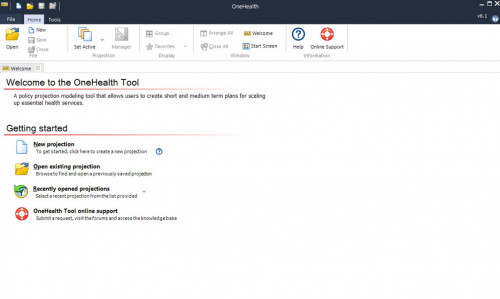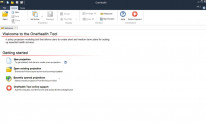
The OneHealth Tool is a software tool designed to inform national and subnational strategic health planning in low- and middle-income countries.
While many costing tools take a narrow disease-specific approach, the OneHealth Tool attempts to link strategic objectives and targets of disease control and prevention programmes to the required investments in health systems.
The tool provides planners with a health sector framework to support scenario analysis, costing, and health impact analysis. It produces outputs designed to inform priority setting, assess affordability, to inform budgeting processes and guide resource allocation. Additionally, the recent integration of cost-effectiveness analysis functionalities in the tool is helpful to inform health benefit package priority setting processes.
The modular setup within the tool allows for high flexibility: users can select which modules to work on (cost, impact, budget analysis). Different disease modules interact through a common demographic model to capture interactions and project outcomes for integrated health care. Applications to date in over 60 countries include: national health plan costing, disease-specific plan costing; Global Fund proposal costing; GFF proposals; benefit package/essential health service costing; local cost-effectiveness analysis to inform prioritization of interventions for the national health essential package.
Outputs from an application will help planners answer the following questions:
• What would be the health system resources needed to implement the strategic health plan (e.g., number of nurses and doctors required over the next 5-10 years)?
• How much would the strategic plan cost, by year and by input?
• What is the estimated health impact, in terms of lives saved, DALYs averted, reduction in mortality rates, prevalence and incidence of disease?
• How do costs compare with estimated available financing?
• What is the cost-effectiveness of specific interventions?


